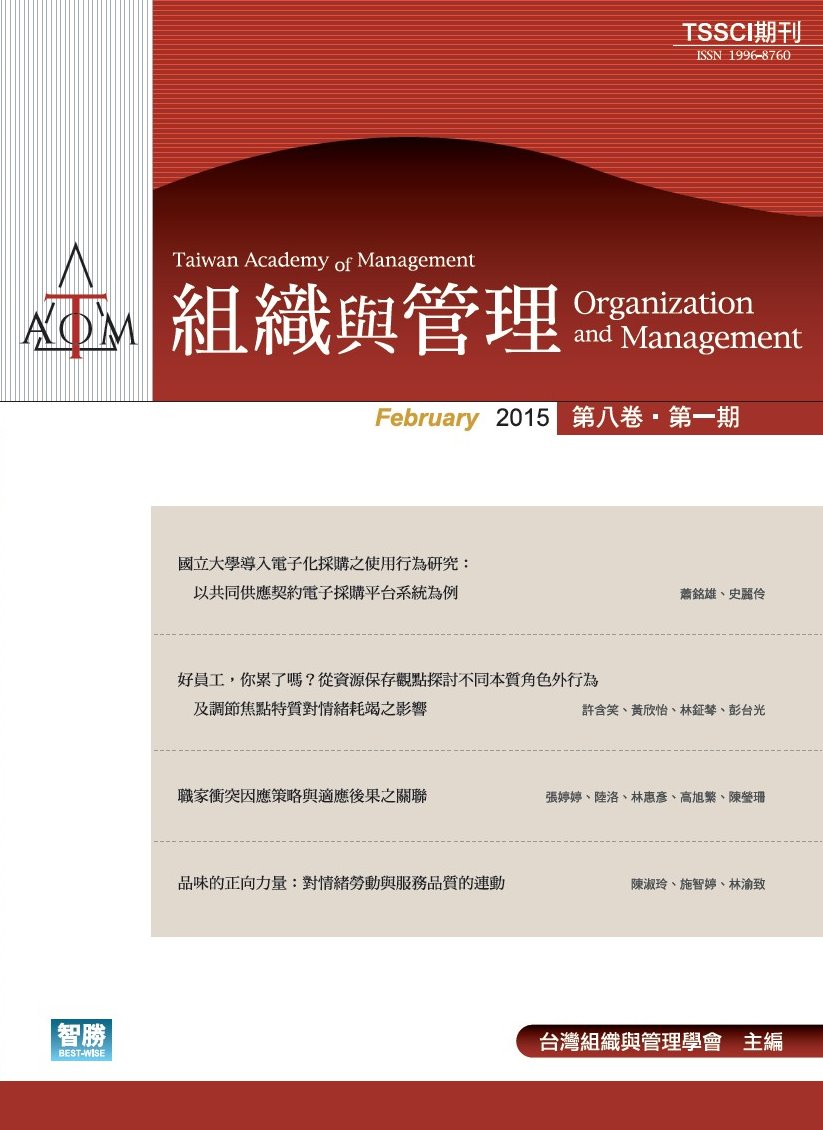Hot News
| 中文篇名 |
職家衝突因應策略與適應後果之關聯 | |
|---|---|---|
| 英文篇名 |
Relationships of Work-Family Conflict Coping Strategies with Adaptational Consequences | |
| 作者 | ||
| 中文摘要 |
現有職家研究中關注因應的研究並不多,我們將探討在職家衝突的情境下,不同的因應策略對適應後果的影響。適應後果涵蓋工作面(組織承諾、工作滿意、離職意向、工作績效)、家庭面(家庭滿意)與個人面(身心健康)等多項指標。此外,由於缺乏專為職家情境設計的因應量表,故本研究採用Somech與Drach-Zahavy(2007)的「職家因應策略量表」(work-family coping strategies scale, WFCS),並在臺灣社會脈絡中編修此一工具並確認其理論基礎與信效度。結果顯示,WFCS可概分為「權衡適中」與「追求完美」兩種,均屬於職家衝突之問題取向因應策略,故我們另行納入職家衝突之情緒取向因應策略,編成新的「職家衝突因應策略量表」。利用結構式問卷進行調查,研究對象以全臺灣來自不同組織的全職工作者為樣本,共計回收630份有效問卷。研究結果發現,職家問題取向因應策略之「追求完美」有最佳的適應效果,「權衡適中」則與各項適應指標皆無關聯,職家情緒取向因應策略卻有較差的適應效果。 | |
| 英文摘要 |
Coping strategies have received little attention in the work-family research, and theory-based coping measures are lacking. We proceeded to investigate the relationships between various work-family conflict coping strategies and adaptational consequences, including work (organizational commitment, job satisfaction, turnover intention, and job performance), family (family satisfaction), and individual outcomes (mental and physical health).The situation-specific workfamily coping strategies scale (WFCS) originally developed by Somech and Drach- Zahavy (2007) is a rare exception. We revised the WFCS scale in the Taiwanese context and found two kinds of coping categories: “Super at work/home” and “Moderation at work/home”. Since both strategies are problem-focused, we included some emotion-focused coping strategies in our revised WFCS scale. Using structured questionnaires, a diverse sample of 630 full-time employees drawn from a variety of organizations was surveyed. We found that “Super at work/home” as a problem-focused coping strategy had good effects on adaptational consequences across the board, while “moderation at work/home” has no effect and emotion-focused coping strategies had some bad effects. | |
| 關鍵詞 |
問題取向因應策略、情緒取向因應策略、職家衝突因應策略、problem-focused coping strategies、emotion-focused coping strategies、work-family conflict coping strategies | |
| 刊名 | ||
| 期數 | ||
| 起訖頁 |
077-111 | |
| 出版單位 | ||
| DOI | ||
| QRCode |
| |
| 上一篇 | ||
| 下一篇 |



